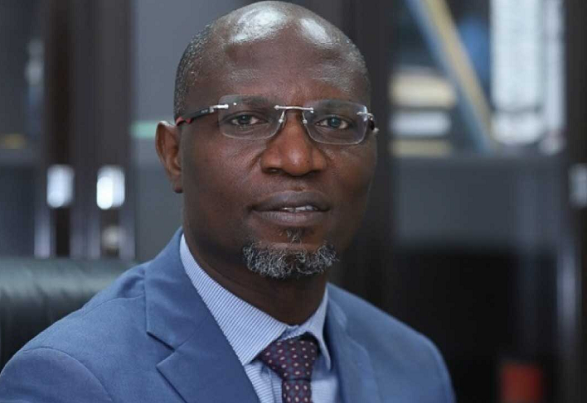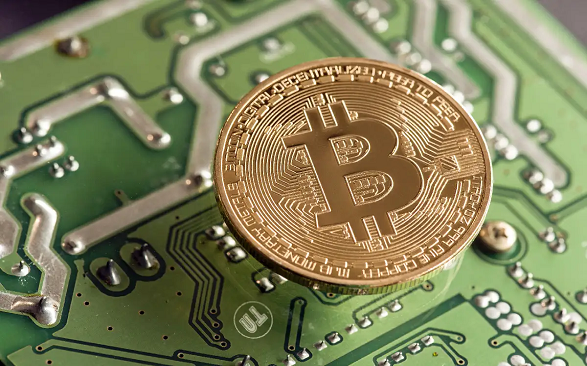Keynote address delivered at the Tokenised Economy 2024 Conference, Baze University, Abuja, October 3, 2024
Distinguished Guests, Ladies and Gentlemen.
- It gives me a great pleasure to be here today to speak to you on an important topic that is at the heart of our work at the Securities and Exchange Commission.
- The theme “Digital Asset Tokenisation: The Way Forward” is timely given the regulatory and market developments that we have had in the recent time.
- Tokenisation is seen as the process of converting the rights to an asset into a digital token on a blockchain. This leads us to innumerable possibilities and innovations that spread across all the forms of traditional securities such as equity, debt, real estate, commodities and more.
- I am honoured to share the Commission’s initiatives on the increasing adoption of digital assets in Nigeria and globally, and indeed the way forward.
- The SEC issued Rules on Issuance, Offering Platforms and Custody of Digital Assets in 2022 and defined a “Digital Asset” as a digital token that represents assets such as a debt or equity claim on the issuer.
- The Commission also collaborates closely with stakeholders such as the Central Bank of Nigeria and Financial Services Regulatory Coordinating Committee to improve regulation in this emerging sector.
- At the global level, the International Organization of Securities Commissions (10SCO) has published policy recommendations for Decentralized Finance (DeFi) to guide securities regulators. Meanwhile, the World Bank, International Monetary Fund (IMF), and Bank for International Settlements (BIS) are all keenly focused not only on developing policies and regulations for tokenisation and digital assets but also on exploring product development for their own initiatives, such as central bank digital currencies (CBDCS), financial infrastructure, and other innovative financial products.
- In June this year, the Swiss National Bank (SNB) made significant strides in digital innovation by becoming the first central bank to conduct a live monetary policy operation using Distributed-Ledger Technology (DLT). The SNB Successfully issued digital bills on the SIX Digital Exchange, marking a key milestone in the adoption of wholesale central bank digital currency (wCBDC).
- The SIX Digital Exchange (SDX) is Switzerland’s tokenised assets platform which has played a pivotal role in facilitating this transformation. In collaboration with financial institutions such as UBS and the World Bank, the platform successfully issued and settled digital bonds using WCBDC. These developments underscore innovation in digital asset adoption, as more financial institutions participate in the growing ecosystem of tokenised financial products.
- An important benefit of the current developments in digital asset tokenisation is the lower barrier to entry for both retail and institutional investors. For us, this encourages a broader range of people to participate in financial markets. Traditionaly, access to high-value assets like real estate, commodities, or fine art has been restricted to wealthy or institutional investors. However, through tokenisation, these assets can be broken down into smaller, more affordable units, allowing individuals with limited financial resources to invest. You would recall the recent interest around non-fungible tokens (NFTS) and how platforms made it easier for anyone, regardless of financial standing, to invest in artistic assets and build diverse portfolios.
- This creates a more inclusive financial system, democratising wealth creation and providing opportunities for underserved and underbanked populations to grow their wealth and participate in the global economy.
- Tokenisation can enhance cash flow management by streamlining settlement processes and reducing the time and costs associated with financial transactions.
- By leveraging blockchain technology, transactions can be processed in real-time, while reducing settlement times from days to minutes. This efficiency not only improves liquidity for both issuers and investors but also frees up capital that can be reinvested in other business operations or investment opportunities, further optimising financial performance.
- Another important benefit is risk diversification. Investors are able to purchase fractional shares of various asset classes. Instead of being tied to large, illiquid assets, investors can spread their investments across multiple tokenised assets, thus reducing exposure to any single asset.
- For issuers which could include companies and even governments, digital asset tokenisation opens up new avenues for raising capital.
- Companies could issue tokenised securities, offering a flexible, cost-effective alternative to traditional fundraising methods. This can attract a more diverse investor base, as digital tokens can be easily traded on secondary markets, thereby enhancing liquidity.
- Furthermore, tokenisation can increase cross-border investment opportunities, enabling issuers to access a global pool of investors while ensuring compliance with regulatory standards, thereby promoting safer and more reliable investment practices.
- As regulators, blockchain technology is crucial because it ensures that all transactions are recorded on an immutable ledger, providing a high level of transparency and security.
- Every token transaction is traceable, reducing the risk of fraud and enhancing the overall trust in our financial system. This transparency is valuable and key for us. It simplifies the monitoring and auditing of financial activities and eventually reduces the cost of regulation.
- In our discussions, you would have noticed the overarching theme of liquidity. Tokenisation significantly enhances liquidity by enabling secondary markets access for assets that are traditionally illiquid, such as real estate or fine art. With tokenised assets, investors can buy and sell fractional ownership in these markets, thereby expanding market participation.
- Despite these benefits that we have highlighted, there are some challenges. In fact, this is normal for any innovative solution that challenges the traditional financial models.
- One of the primary challenges in digital asset tokenisation is the fragmented regulatory landscape across different jurisdictions. Each country will have its rules and regulations, which can vary significantly.
- This lack of uniformity complicates cross-border trade and the transfer of tokens, as entities must navigate numerous legal requirements. The inconsistency in regulatory approaches can hinder the seamless operation of digital asset markets and create barriers to international collaboration and innovation.
- The lack of uniformity of regulations can also lead to regulatory arbitrage. Entities may exploit lenient regulations in certain regions to engage in activities that would be restricted or heavily regulated elsewhere. The potential for regulatory arbitrage underscores the need for more harmonised global standards which the IOSCO and other international agencies are pioneering.
- Furthermore, the key feature of anonymity associated with some digital assets presents substantial challenges for AML/CFT efforts. Illicit financial flows can be facilitated through these anonymous transactions, making it difficult for authorities to track and prevent money laundering and terrorism financing.
- Additionally, the compliance burden on token issuers and exchanges is significant They must implement robust measures to detect and report suspicious activities. Balancing the need for privacy with the imperative of security remains a critical challenge in the digital asset space.
- SEC Nigeria, on its part as the primary regulator of the capital market, and one also mandated to develop same market, recognises the potential of blockchain and digital assets to revolutionise the capital markets. We have introduced several measures to ensure that these innovations are harnessed responsibly: a. Accelerated Regulatory Incubation Programme (ARIP) and Regulatory Incubation (RI) Programme: The ARIP and RI Programmes were designed to on-board firms operating in the digital asset space and provide a controlled environment to test new models, products, and services. These programmes foster innovation while ensuring that robust consumer safeguards are in place. The recent approval-in-principle granted to two digital asset exchanges participating in this programme is testament to our commitment to enabling innovation.
- Our regulatory stance is clear, digital assets such as cryptocurrencies and other tokenised assets are classified as securities unless proven otherwise. We have established a registration framework that requires issuers and sponsors to prove that their assets do not qualify as securities. This ensures that investor protection and market integrity are upheld while providing a level playing field for legitimate market participants.
- SEC took commendable steps to establish a regulatory framework that governs the issuance of digital assets, recognising their potential to transform our economy while ensuring the protection of investors.
- To promote transparency and safeguard investor interests, we mandated that issuers of digital securities must register their offerings. This process includes the submission of a detailed prospectus outlining the offering’s characteristics, the business operations involved, potential risks, and the intended use of proceeds. Such disclosures are crucial in fostering informed decision-making among investors and ensuring they understand the opportunities and risks associated with their investments.
- In addition to registration and disclosure requirements, SEC emphasises the importance of consumer protection within the digital assets space. Issuers are encouraged to implement robust measures to prevent fraud and ensure transparency in all transactions.
- Furthermore, the regulatory framework mandates that digital asset service providers, including exchanges and wallet services, obtain registration with SEC and adhere to applicable regulations. This establishes a level of accountability and builds trust in our developing digital asset ecosystem.
- Lastly, to combat illicit activities and promote a secure trading environment, the SEC requires all digital asset service providers to implement comprehensive anti-money laundering measures. By fostering a regulatory landscape that prioritises investor protection and accountability, we are paving the way for innovation in the digital asset space while ensuring that we uphold the principles of integrity and transparency that are fundamental to our financial system.
- The future of digital asset tokenisation is bright in Nigeria. However, we must improve collaboration between regulators, financial institutions, and the tech community.
- Regulators can provide the necessary oversight to ensure compliance and protect consumers, while financial institutions can leverage their expertise to integrate digital assets into the broader financial system.
- The tech community, with innovative solutions, can drive the development of secure and efficient tokenisation technologies. This collaborative approach will pave the way for a robust and sustainable digital asset ecosystem. The innovation that we expect from you cuts across every asset where solutions can be provided. There are opportunities in real estate, hard and soft commodities, traditional financial assets, art and many more. There are solutions to many problems in developing countries such as Nigeria and I encourage you to think of how you can achieve this.
- SEC has positioned Nigeria as a regional leader in digital asset regulation and innovation by developing forward-thinking regulatory frameworks and fostering a supportive environment for digital asset businesses.
- In conclusion, digital assets offer an opportunity to transform our economies and societies, and we commit to this journey with a shared vision, a spirit of collaboration, and an unwavering focus on building a prosperous and inclusive Africa.
Thank you and God bless.
Emomotimi J. Agama PhD
Director General
Securities and Exchange Commission (SEC), Nigeria
Discover more from Crypto Asset Buyer
Subscribe to get the latest posts sent to your email.





